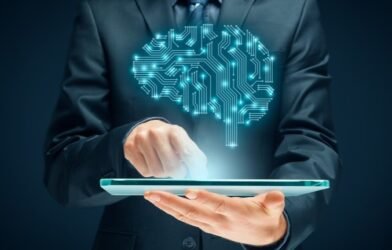Introduction to The Changing Scene of Work:
In the present rapidly creating world, work is going through enormous changes. Degrees of progress in advancement, the rise of the gig economy, and the creating meaning of adaptability and well-established learning are reshaping our viewpoint on tutoring and getting ready.
1. The Effect of Innovation on Positions:
Development, particularly computerization and man-made thinking (recreated knowledge), is changing organizations regardless of your perspective. While it brings exceptional capability and effectiveness gains, it in like manner disturbs traditional sources of income, making explicit capacities obsolete while making new demands.
The Ascent of the Gig Economy:
The gig economy, depicted by transient arrangements and free work, is ending up being continuously normal. This shift towards free work requires a substitute plan of capacities, including self-control, utilizing time beneficially, and business.
The Significance of Versatility and Long lasting Learning:
In this strong scene, flexibility and well-established learning have become fundamental. Individuals ought to reliably revive their capacities to remain significant and serious in the gig market.
2. Sought-after Abilities for the Future Labor Force:
Specialized Abilities versus Delicate Abilities: The Advancing Equilibrium:
While specific capacities stay fundamental, directors are putting a highlight on fragile capacities. These consolidate conclusive thinking, decisive reasoning, correspondence, participation, and the ability to see the value in individuals on a more profound level.
Sensitive capacities are crucial for investigating complex work environments and developing progression.
Top Abilities for What’s in store:
Despite fragile capacities, certain specific capacities are pursued across various organizations. These recall abilities for PC-based knowledge, data assessment, network assurance, and progressing advancement.
Chiefs are searching for individuals who can utilize development to drive business improvement and headway.
Emerging Skills in Specific Industries:
As innovation keeps on progressing, new abilities are arising in unambiguous enterprises. For instance, the medical services industry requires aptitude in telemedicine and far-off quiet checking,
while maintainability-centered jobs request information on sustainable power and natural preservation rehearses.

3. Reimagining Education and Training Systems:
The Need for a Skills-Based Approach:
Conventional schooling systems frequently focus on scholastic capabilities over down-to-earth abilities. Nonetheless, there is a developing acknowledgment of the requirement for an abilities-based approach that furnishes people with the capabilities expected of the labor force.
The Ascent of Miniature Qualifications and Elective Learning Pathways:
Miniature qualifications, for example, computerized identifications and testaments, offer an adaptable and practical method for gaining explicit abilities. These reduced down accreditations permit people to modify their learning process and show authority in specialty regions.
Customized Learning and Versatile Advances:
Progressions in innovation empower customized growth opportunities custom-made to individual inclinations and learning styles. Versatile learning stages use information investigation and computer-based intelligence calculations to convey designated content and evaluations, augmenting learning results.
The Future Job of Instructors and Teachers:
In the computerized age, teachers play a vital part in working with significant growth opportunities. They should embrace imaginative showing techniques, influence innovation successfully, and sustain understudies’ interest and inventiveness.
4. Creative Learning Techniques for the 21st Hundred Years:
Gamification of Picking up: Making Getting the Hang of Drawing for Grown-ups:
Gamification incorporates game plan components into growth opportunities to upgrade commitment and inspiration. By consolidating components like rewards, difficulties, and headway following, gamified learning makes schooling more charming and powerful for grown-ups.
The Capability of Computer generated Reality and Expanded Reality in Training:
Computer-generated reality (VR) and increased reality (AR) can possibly change training by giving vivid and intelligent learning conditions. These innovations empower students to investigate complex ideas, mimic genuine situations, and team up with peers all around the world.
Cooperative Learning and Distributed Information Sharing:
Cooperative learning encourages shared connections, empowering people to gain from one another’s encounters and points of view. Online gatherings, conversation gatherings, and cooperative undertakings work with information sharing and aggregate critical thinking.
The Significance of Experiential Learning and Task-Based Learning:
Experiential learning accentuates involved encounters and certifiable applications. Project-based learning urges understudies to chip away at true activities, applying hypothetical information to take care of reasonable issues and fostering fundamental abilities.
5. Developing a Culture of Lifelong Learning:
The Responsibility of Individuals: Continuous Skill Development:
In the present information economy, people should accept responsibility for learning ventures. Persistent ability improvement is fundamental for professional success and self-awareness.
By searching out learning open doors and embracing new difficulties, people can remain ahead in their vocations.
The Job of Businesses: Advancing Reskilling and Upskilling Projects:
Businesses assume a pivotal part in encouraging a culture of long-lasting advancement inside their associations. By offering reskilling and upskilling programs, bosses engage their labor force to adjust to developing position jobs and advances, guaranteeing business manageability and worker fulfillment.
Government Drives and Public-Private Associations:
Government drives and public-private associations can work with admittance to schooling and preparing assets, particularly for underserved populations. By putting resources into labor force improvement programs and boosting coordinated efforts among partners, state-run administrations can uphold financial development and social portability.
6. Future Challenges and Opportunities:
Bridging the Skills Gap: Strategies for Equitable Access to Education and Training:
Tending to the abilities hole requires a complex methodology that guarantees fair admittance to instruction and preparing valuable open doors for all people, paying little heed to foundation or financial status. Procedures, for example, reasonable instruction, mentorship projects, and local area organizations can assist with overcoming this issue.
The Moral Ramifications of Artificial Intelligence in Training:
As artificial intelligence turns out to be progressively incorporated into instruction, moral contemplations should be painstakingly tended to.
This incorporates concerns connected with information protection, algorithmic predisposition, and the effect of computerization on work uprooting. Teachers and policymakers should team up to foster moral rules and shields to safeguard students’ freedoms and interests.
The Eventual Fate of Work-Based Learning: Apprenticeships and Mentorship:
Work-based learning, for example, apprenticeships and mentorship programs, gives significant active experience and industry bits of knowledge. By associating students with experienced experts and industry pioneers, these projects work with expertise improvement and professional movement.
Getting ready for the Unexplored world: Flexibility and Strength Later on Labor force:
In a period of quick change and vulnerability, versatility and flexibility are fundamental abilities for exploring the future labor force. People should embrace deep-rooted learning, develop a development outlook, and stay spry notwithstanding startling difficulties.
FAQs :
Q: What are the top abilities businesses will be searching for from now on?
A: Businesses will focus on delicate abilities like decisive reasoning, correspondence, and flexibility, close to specialized abilities like computer-based intelligence, information examination, and network safety.
Q: How might I keep up-to-date on the most recent abilities required in my field?
A: Remain informed through internet-based courses, industry distributions, organizing occasions, and expert improvement valuable open doors pertinent to your field.
Q: Are conventional degrees still important coming soon for work?
A: Sometimes customary degrees give a strong groundwork, businesses progressively esteem functional abilities and certifications.
Miniature certifications offer an adaptable option in contrast to conventional degrees, permitting people to procure explicit abilities rapidly and moderately.
Q: What are miniature certifications and how might they help me?
A: Miniature certifications are short, engaged courses that give particular abilities and information. They benefit people by offering a practical method for gaining popular abilities and improving employability.
Conclusion:
Building a Future-Prepared Labor Force:
Building a future-prepared labor force requires coordinated effort and aggregate activity from all partners, including people, bosses, teachers, states, and policymakers.
By cooperating towards a common vision of schooling and preparing, we can prepare people to flourish in the continually developing universe of work.
A Look Forward: The Eventual Fate of Abilities and Schooling:
As we look forward, the eventual fate of abilities and schooling vows to dynamic and energize. By embracing development, encouraging long-lasting learning, and developing a culture of versatility, we can make a future where each individual has the chance to arrive at their maximum capacity.












